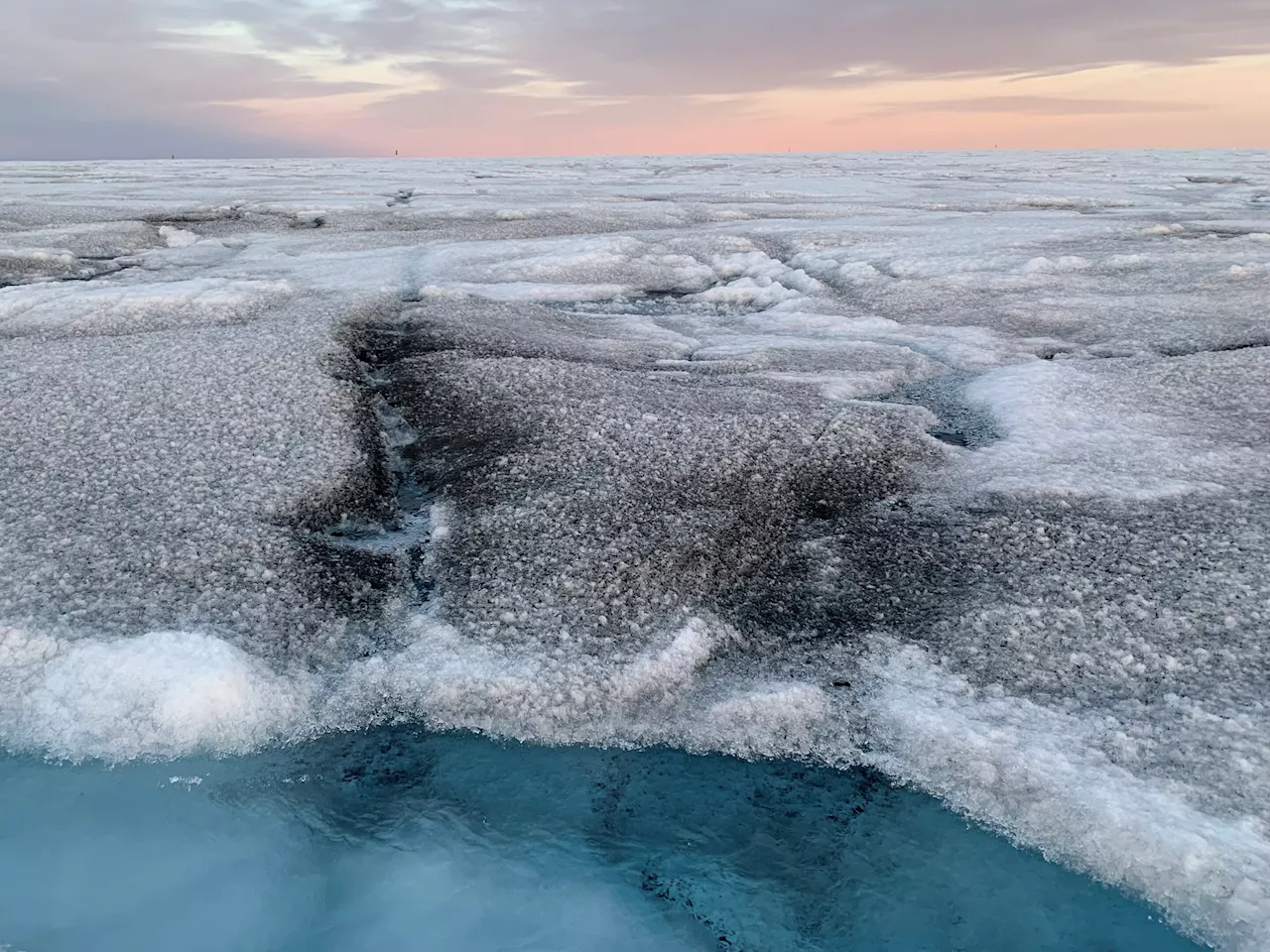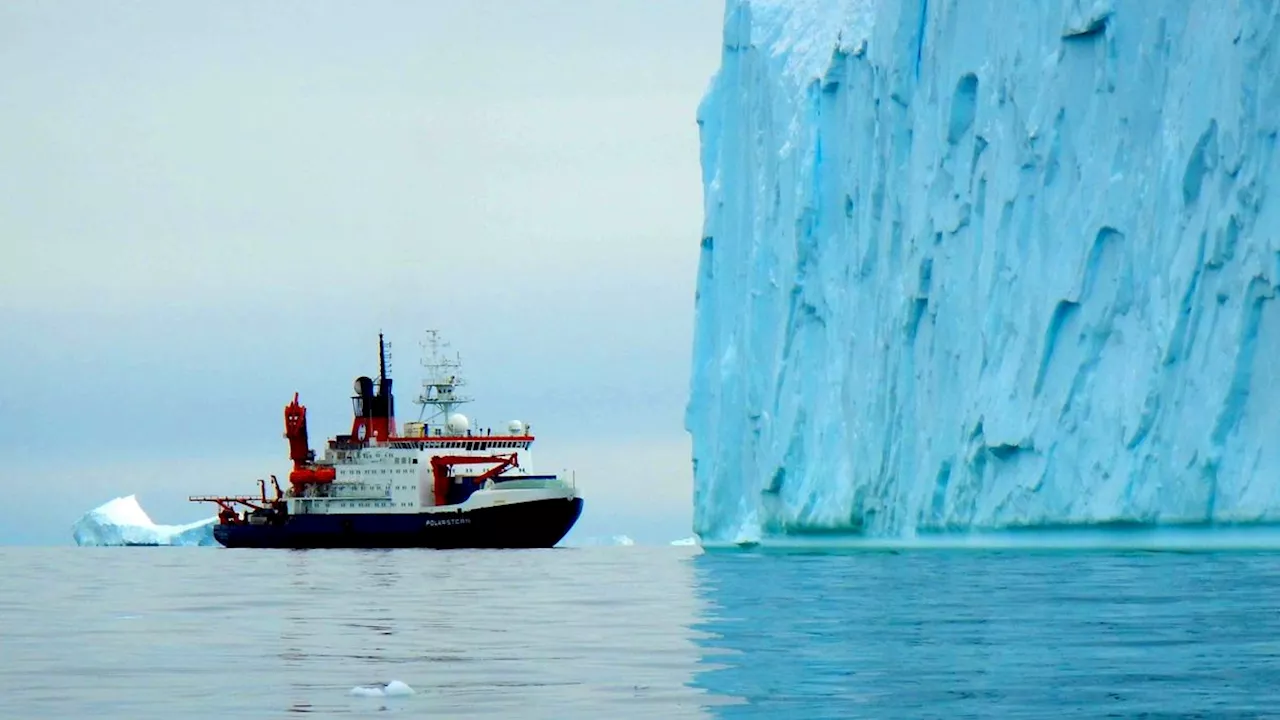Scientists recently discovered giant viruses infecting algal blooms that dot the Greenland ice sheet
Several areas in Greenland are covered with black algae, which could speed ice melt by absorbing sunlight.Hordes of giant viruses are living on the world's second-largest body of ice — and may be slowing the impacts of climate change.on the Greenland ice sheet. Some of the viruses, they say, have infected algae, potentially limiting the growth of colored snow blooms that can speed up ice melt and raise global sea levels.
Since being classified in the 1980s, scientists have found giant viruses — or nucleocytoplasmic large DNA viruses — all over the world in soil, rivers and oceans. Perini and her team wanted to find out if they also inhabited icy Greenland. “We have some examples that are reasonably well studied” of marine algal blooms, Schulz said in an interview. “Giant viruses play a role there in terminating the algae.”
Schultz said that may not be a good idea — algae have other functions, like storing carbon — but the study indicates it's worth exploring and puts the idea"on my radar." But there are a lot of other factors that may also affect how Greenland's ice sheet responds to warming temperatures, Tedesco added.
United Kingdom Latest News, United Kingdom Headlines
Similar News:You can also read news stories similar to this one that we have collected from other news sources.
 The good news about ‘giant viruses’ found in the Arctic CircleTom Hawking is a writer based in New York City. He writes about culture, politics, science and everything in between. His work has appeared in the New York Times, the Guardian, Rolling Stone, and many other publications.
The good news about ‘giant viruses’ found in the Arctic CircleTom Hawking is a writer based in New York City. He writes about culture, politics, science and everything in between. His work has appeared in the New York Times, the Guardian, Rolling Stone, and many other publications.
Read more »
 Giant viruses discovered living in Greenland's dark ice and red snowPatrick Pester is a freelance writer and previously a staff writer at Live Science. His background is in wildlife conservation and he has worked with endangered species around the world. Patrick holds a master's degree in international journalism from Cardiff University in the U.K.
Giant viruses discovered living in Greenland's dark ice and red snowPatrick Pester is a freelance writer and previously a staff writer at Live Science. His background is in wildlife conservation and he has worked with endangered species around the world. Patrick holds a master's degree in international journalism from Cardiff University in the U.K.
Read more »
 Giant viruses discovered on Greenland ice sheet could reduce ice meltEvery spring when the sun rises in the Arctic after months of darkness, life returns. The polar bears pop up from their winter lairs, the Arctic tern soar back from their long journey south, and the musk oxen wade north.
Giant viruses discovered on Greenland ice sheet could reduce ice meltEvery spring when the sun rises in the Arctic after months of darkness, life returns. The polar bears pop up from their winter lairs, the Arctic tern soar back from their long journey south, and the musk oxen wade north.
Read more »
 Giant viruses found on Greenland ice sheetGiant viruses found on the Greenland ice sheet probably regulate the growth of snow algae on the ice by infecting them. Knowing how to control these viruses could help us reduce the rate of ice-melt.
Giant viruses found on Greenland ice sheetGiant viruses found on the Greenland ice sheet probably regulate the growth of snow algae on the ice by infecting them. Knowing how to control these viruses could help us reduce the rate of ice-melt.
Read more »
 Giant river system that existed 40 million years ago discovered deep below Antarctic iceKristel is a science writer based in the U.S. with a doctorate in chemistry from the University of New South Wales, Australia. She holds a master's degree in science communication from the University of California, Santa Cruz. Her work has appeared in Drug Discovery News, Science, Eos and Mongabay, among other outlets.
Giant river system that existed 40 million years ago discovered deep below Antarctic iceKristel is a science writer based in the U.S. with a doctorate in chemistry from the University of New South Wales, Australia. She holds a master's degree in science communication from the University of California, Santa Cruz. Her work has appeared in Drug Discovery News, Science, Eos and Mongabay, among other outlets.
Read more »
 Newly Discovered Deep Sea Squid Sacrifices Herself to Keep Giant Eggs SafeMarine scientists have detailed a likely unknown species of squid that may spend years without eating to carefully watch over her eggs until they hatch.
Newly Discovered Deep Sea Squid Sacrifices Herself to Keep Giant Eggs SafeMarine scientists have detailed a likely unknown species of squid that may spend years without eating to carefully watch over her eggs until they hatch.
Read more »
